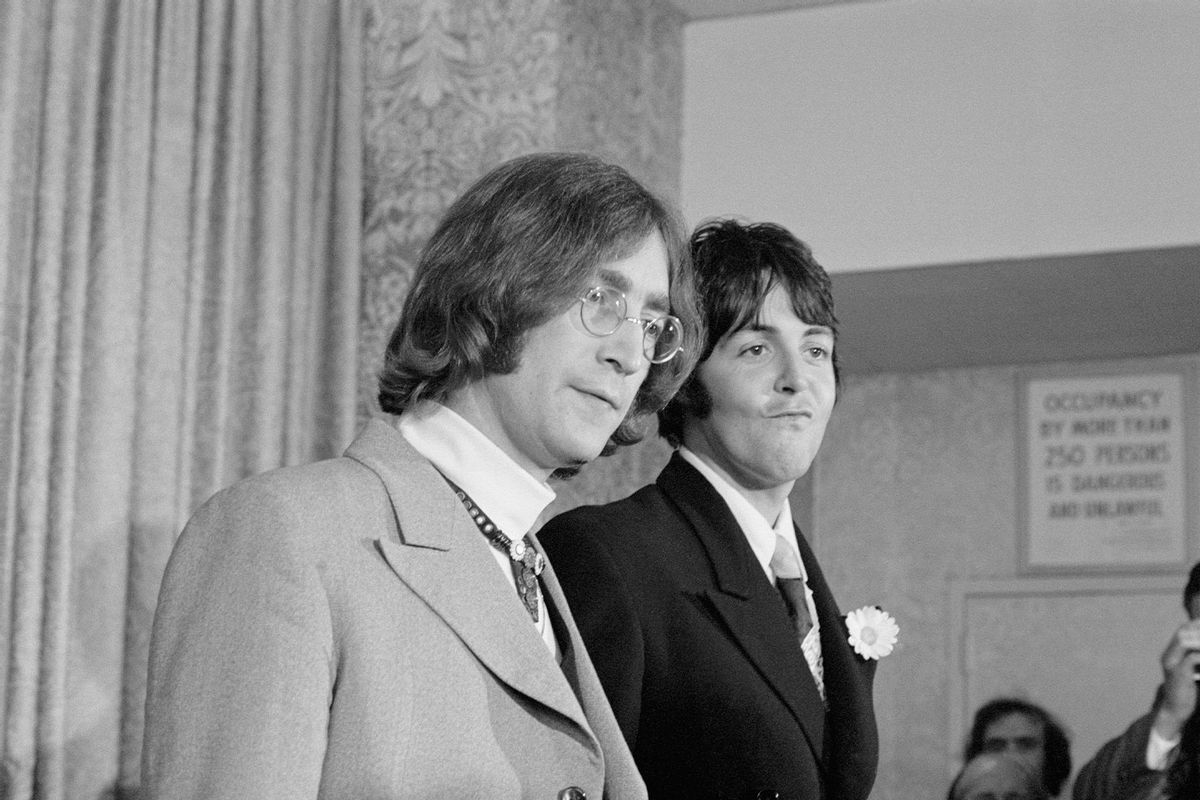Like you, I've been inundated with myriad Beatles AI treatments of late. Every day, they seem more outlandish: the Beatles playing Wings songs, the Beatles performing Gotye's "Somebody That I Used to Know," the Beatles singing "We Are the World," John Lennon playing Oasis' "Wonderwall," and, my personal favorite, Paul McCartney taking the artificial microphone to sing "How Do You Sleep," Lennon's 1971 vocal screed about Beatle Paul.
To my ears, they're fairly unconvincing on the whole. But at the current rate, prevailing AI technologies will likely remedy these discrepancies with predictable speed. This brings us to this week's headlines trumpeting new AI-generated Beatles material. During a BBC Radio 4 interview, McCartney announced that a "new" Beatles record is on the horizon. Thankfully, he appears in all likelihood to be speaking about the fate of "Now and Then," one of Lennon's late-period demos.
As the story goes, more than a decade after Lennon's murder, the surviving Beatles approached Yoko Ono about the concept of enhancing Lennon's Dakota-era demos for release. After McCartney delivered his induction speech on Lennon's behalf at the Rock and Roll Hall of Fame's January 1994 ceremony, Ono provided him with Lennon's demo tapes for "Free as a Bird," "Real Love," "Now and Then" and "Grow Old with Me." Before leaving the Dakota, McCartney later recalled:
"I checked it out with Sean, because I didn't want him to have a problem with it. He said, 'Well, it'll be weird hearing a dead guy on lead vocal. But give it a try.' I said to them both, 'If it doesn't work out, you can veto it.' When I told George and Ringo I'd agreed to that they were going, 'What? What if we love it?' It didn't come to that, luckily. I said to Yoko, 'Don't impose too many conditions on us, it's really difficult to do this, spiritually. We don't know—we may hate each other after two hours in the studio and just walk out. So don't put any conditions; it's tough enough.'"
Love the Beatles? Listen to Ken's podcast "Everything Fab Four."
With Jeff Lynne handling production duties, McCartney, George Harrison and Ringo Starr completed new recordings for "Free as a Bird" and "Real Love" as part of the Beatles' "Anthology" project. When it came to "Now and Then," the audio was apparently so degraded, having originally been recorded on cassette, that the "Threetles," as they came to be known, scrapped any plans for enhancing Lennon's solo demos in the future. As Starr noted at the time, "recording the new songs didn't feel contrived at all, it felt very natural, and it was a lot of fun, but emotional too at times. But it's the end of the line, really. There's nothing more we can do as the Beatles."
Apparently, McCartney didn't agree, vowing to work with Lynne to bring "Now and Then" to fruition. Harrison allegedly didn't share this perspective, citing the poor fidelity of Lennon's demo as the reason for scrapping any efforts beyond "Free as a Bird" and "Real Love," both of which notched Top Five UK hits. This week's news strongly suggests that McCartney has made good on his word, finally completing work on "Now and Then." "We were able to take John's voice and get it pure through this AI," he told the BBC, "so that then we could mix the record as you would normally do. It gives you some sort of leeway."
Fortunately for all of us, McCartney is almost certainly referring to the AI technologies developed by director Peter Jackson, the filmmaker behind the Beatles' blockbuster "Get Back" docuseries, and not the recent spate of novelty AI videos, such as the Beatles performing Radiohead's "Creep." Yes, you read that last bit correctly.
Adopting Jackson's latest AI technologies will no doubt assist the Beatles' team in reducing the muddiness of Lennon's original cassette recording and establishing greater separation among the voices and instruments. This time around, McCartney reported, "we came to make what will be the last Beatles record." I, for one, can't wait to hear the results. But let's not have any more funny business. I just queued up the AI version of Lennon singing Coldplay's "The Scientist," which left a lot to be desired. Enter at your own peril.



Shares